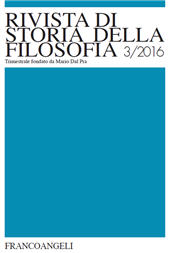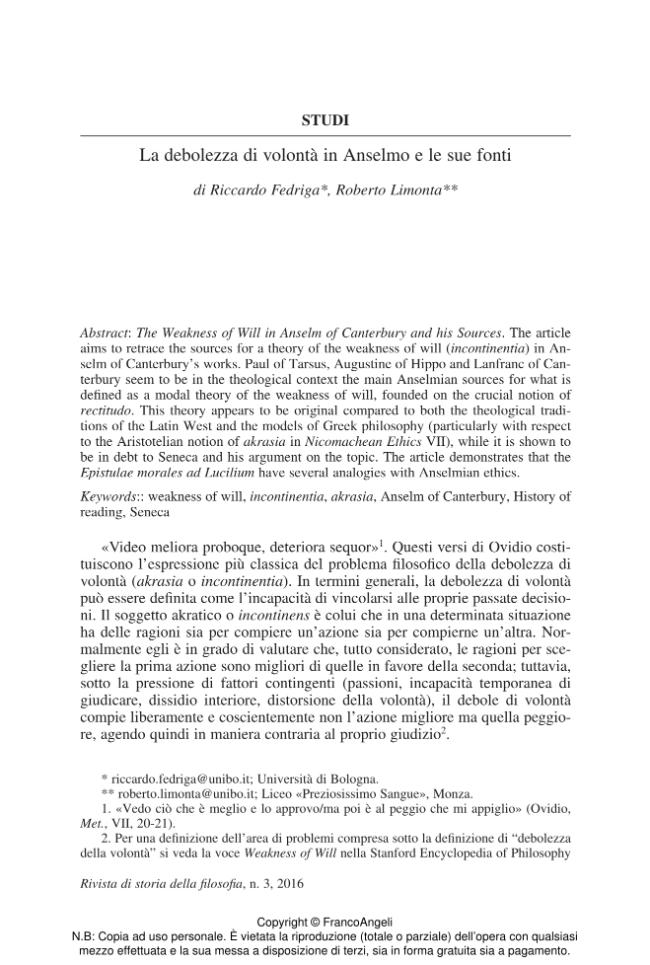La debolezza di volontà in Anselmo e le sue fonti
357-386 p.
The article aims to retrace the sources for a theory of the weakness of will (incontinentia) in Anselm of Canterbury's works. Paul of Tarsus, Augustine of Hippo and Lanfranc of Canterbury seem to be in the theological context the main Anselmian sources for what is defined as a modal theory of the weakness of will, founded on the crucial notion of rectitudo. This theory appears to be original compared to both the theological traditions of the Latin West and the models of Greek philosophy (particularly with respect to the Aristotelian notion of akrasia in Nicomachean Ethics VII), while it is shown to be in debt to Seneca and his argument on the topic. The article demonstrates that the Epistulae morales ad Lucilium have several analogies with Anselmian ethics.
Fait partie de
Rivista di storia della filosofia : LXXI, 3, 2016-
Articles du même numéro (disponibles individuellement)
-
Informations
Code DOI : 10.3280/SF2016-003001
ISSN: 1972-5558
KEYWORDS
- Weakness of will, incontinentia, akrasia, Anselm of Canterbury, History of reading, Seneca



